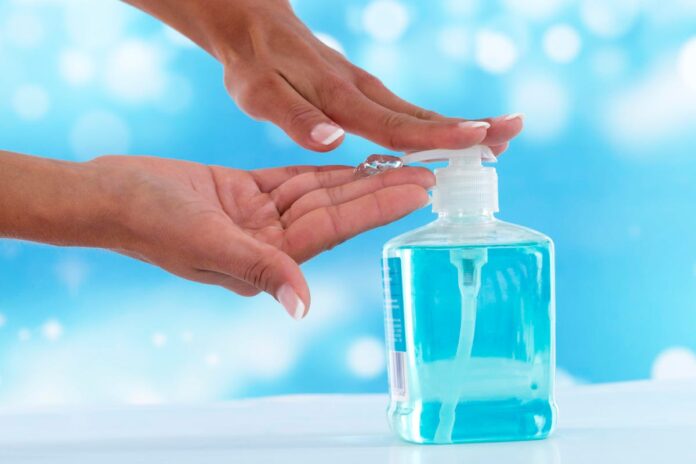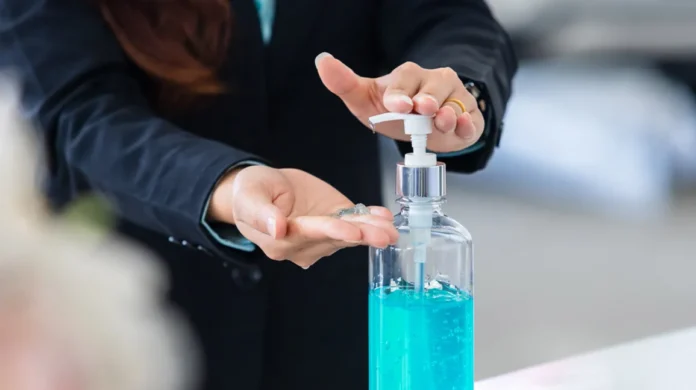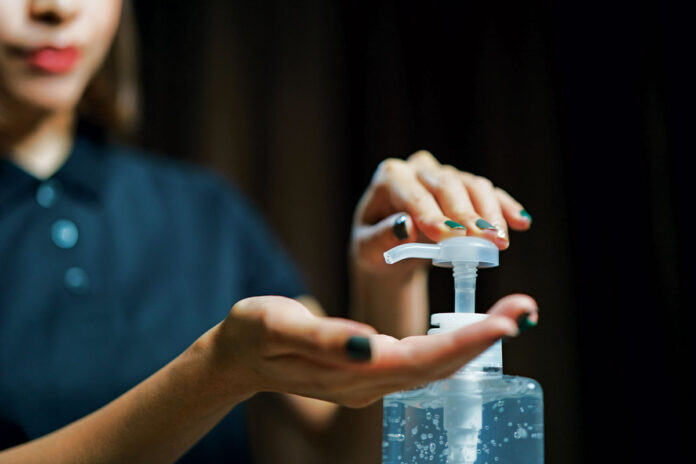
Even though your hands are helpful, they can spread viruses to your eyes, mouth, and nose, among other body parts. The ideal way to wash your hands is with soap and warm water, while hand sanitizer is also a substitute. When learning about its many advantages, you might realize that you need to make this germ-fighter a mainstay on your shopping list.
These days, hand sanitizers can get found in public restrooms, emergency departments, and nursing homes. The value of proper hand washing in reducing the spread of dangerous germs is well known. In any case, there are times when extra soap and water are needed or when there is not enough time to wash thoroughly. Can hand sanitizers be used in place of washing your hands? Would using hand sanitizer lessen your risk of getting sick? Let’s investigate!
Click here and avail yourself of amazing discounts on premium skincare bath and body works products.
The Function Of Hand Sanitizer

When water and soap are not accessible or after hand washing, hand sanitizers were developed. These gels’ alcohol destroys any bacteria that come in contact with the skin. Most diseases and tiny organisms are quickly eliminated by alcohol. Since alcohol can cause significant skin irritation, most sanitizer companies also offer a lotion to lessen skin dryness and irritability.
What Quantity Of Hand Sanitizer Is Advised To Use?
Apply a dime-sized amount of hand sanitizer to the palm of your hand and rub it all over your hand, paying particular attention to your nail beds, to effectively use it. If the gel completely evaporates in less than 15 seconds, you may need to apply more hand sanitizer.
6 Benefits Of Using Hand Sanitizer

Below are the top 6 benefits that will surely convince you to use a hand sanitizer.
1. Help You Keep Yourself Clean
It is designed to kill germs and is capable of doing so. They can remove 99.9% of the germs on your palms when used perfectly.
When handling food, animals, waste, and that’s just the tip of the iceberg that the CDC advises washing your hands frequently. In such conditions, sanitizer is the best addition to cleaning your hands using water and soap.
2. Convenience
You can’t carry a sink wherever you go. In some situations, water and soap may only sometimes be available when washing your hands. You can put a little bottle of hand sanitizer in your glove box, bag, or even your pockets.
Moreover, it is perfect for those moments when you are having a snack while playing a game or have just left a public area like a market.
3. Suitable For Settings With A Group

Germs spread quickly in public areas with high foot traffic, such as workplaces, classrooms, and other public spaces. You can get sick from other people’s germs, whether you’re cleaning up after yourself or getting ready to eat, especially if you’re near them.
Due to this, grouping conditions are the perfect places to use sanitizer. Even people who visit the gym can use a dab of hand sanitizer while moving onto the following exercise machine. Sometimes teachers, students, and working adults can get rid of the day’s germs without deciding to leave their workstations or study area.
4. Reduce The Risk Of Illness
Your health depends on limiting your contact with other people’s germs, especially during flu season. Every break you take during the day reduces your risk of becoming ill.
Maintaining hand hygiene as clean as possible is vital since even a brief trip to a friend’s house or the store might introduce you to germs that could lead to influenza, a cold, or other illnesses.
5. Have Softer-Feeling Hands
This may be one of the most unbelievable advantages of using hand sanitizer, but it is true. The skin texture of your hands can improve significantly by using alcohol-free hand sanitizers. Emollients found in hand sanitizers relax your skin and give you softer, more aesthetically pleasing hands.
Your skin’s appearance and feeling of moisture will undoubtedly change. Avoid using hand sanitizers with alcohol during pandemics like COVID-19 or influenza outbreaks, as they can wipe away the skin’s natural oils and cause cracking, which creates an entry point for bacteria.
6. Decrease The Number Of Germs
In some situations, alcohol-based hand sanitizers can significantly reduce the number of microorganisms on the hands, but they do not completely eradicate all germs. Soaps and water seem to be more potent at killing some bacteria than hand sanitizers.
When used as instructed, alcohol-based sanitizers can efficiently inactivate various microorganisms. Still, some people might need to use more or wash it off before it dries.
When Should You Use Hand Sanitizer Most Effectively?

It might be less effective when your hands are dirty or oily. According to numerous studies, hand sanitizers work best in medical clinics where people’s palms come into contact with pathogens but are typically not very unclean or oily.
Additionally, some research suggests that hand sanitizers may be effective against specific pathogens on somewhat dirty hands. However, people’s hands may get very greasy or filthy in public places after handling food, engaging in sports, and working in the nursery, camping, or boating. In these circumstances, hand cleaning with soap and water is advised.
What Type Of Hand Sanitizer Is Best To Use?
Hand sanitizer has several advantages, from effectively and conveniently combating germs to enhancing skin texture. No matter where life takes you, using this antimicrobial product continuously throughout the day will maintain your hygiene and well-being.
Utilize an organic sanitizer having enzymes if soaps and water are not present. According to studies, sanitizers with an alcohol content of between 65 and 95 percent are effective at getting rid of germs. Still, they can have many adverse side effects if used repeatedly. The best organic hand sanitizers for total hand protection contain enzymes. They also contain hydrating chemicals that stop your hands from getting dry and make them moisturized.











